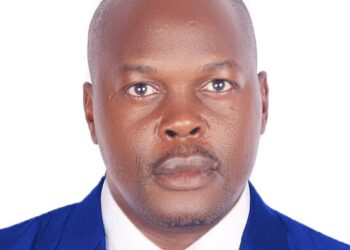Over the past few months Uganda appears to have been targeted by ADF terrorists under the umbrella of ISCAP (Islamic State – Central Africa Province).
The wave of attacks was kicked off by an assassination attempt on General Katumba Wamala in which his daughter and driver were tragically killed. Since that time there have been various small bombings that have killed several people including (we are told) the bombers themselves. Last week there were two bomb explosions in central Kampala near Central Police Station and along Parliament Avenue in which four people were killed including one policeman. Over thirty people were injured, with five in critical condition.
I was up-country when these bombings took place and it all seemed quite far removed, since I had ascertained that none of my family was involved. Although there was a tragic loss of life, these bombs were not like the massive bombs I had witnessed in Northern Ireland during the ‘troubles’, when scores of people were killed and injured, and property was devastated in a radius of hundreds of meters. However, later that day I was informed that one of our home guards was missing, and he was thought to have gone down town that morning around the time of the explosions. His son, who also works for us, had tried calling his father and a policeman had answered the phone, but said he did not know who the phone belonged to. When he rang again the number rang, but no one picked up. This left us worrying if George had been injured or even killed during the blast, but we had no information. The police then released a list of those who had been taken to Mulago and George’s name was on the list, so his son hurried to Mulago Casualty to look for him. But Mulago did not have any record, and he was told that many of those who had been brought in after the bombing had minor injuries and were discharged, but George still did not turn up. I also asked a senior doctor at Mulago to check, but there was no record of George having been admitted.
The following day I advised his son to go back to Mulago, but also to the police to see if they had any information, but CPS was closed and it was difficult to know where to make inquiries from the police. At Mulago they still had no record, but he did manage to speak to one lady who remembered his father but did not know what had happened to him. This left two possibilities: he was dead or he had been admitted. Mulago is a big scary place for most normal people, especially if you don’t know if you are looking for a patient or a body, and we feared the worst. Fortunately his son found him; he was alive, though unconscious in Intensive Care Unit. Somewhere along the line his ID had been lost, which is why he had not been identified among the critically injured.
George had gone downtown that morning to support a friend who had a case at the high court and had been near the bomb when it exploded. As a result he sustained a shrapnel wound to the head and was taken to Mulago. There he was taken to theatre where neurosurgery was carried out, and a blood clot removed from his brain. He was then admitted to ICU where he was put on a ventilator. A few days later I visited and talked to the doctor who was treating him. His condition was critical, though stable, so only time will tell if he will recover. George is a lovely human being, very reliable and trustworthy, always there to help, and it will be a tragedy if George does not recover. Most of us think that such an incident could never happen to us, but what were the chances that out of several million people in Kampala, George would find himself in the vicinity of a bomb? We often refer to such people as ‘victims’ of terrorism, but they are all innocent human beings with sons, families and friends. Random killing and injury of our fellow man is the most pointless of crimes, and the most misguided.
Do you have a story in your community or an opinion to share with us: Email us at editorial@watchdoguganda.com













